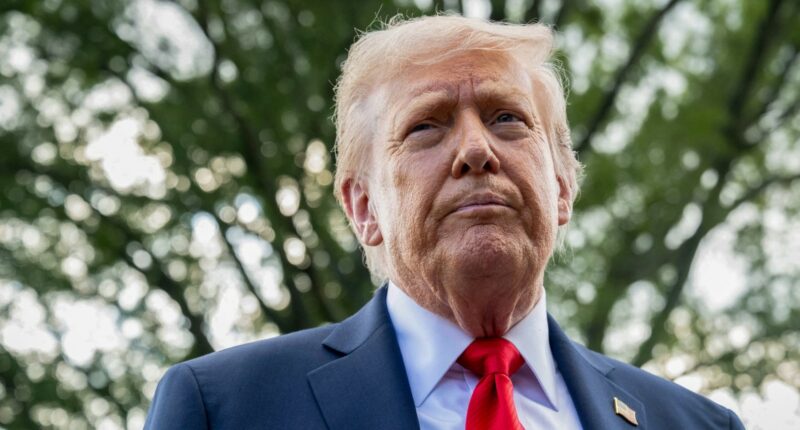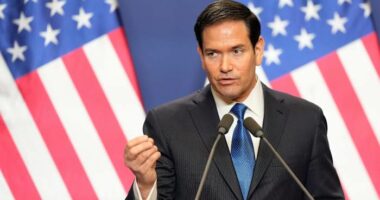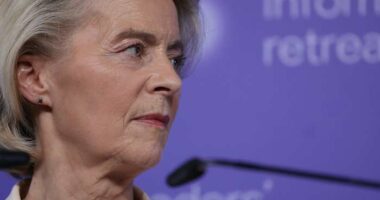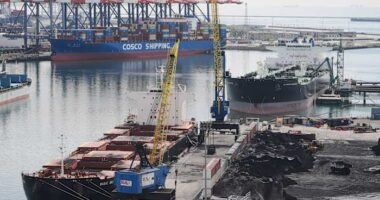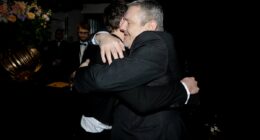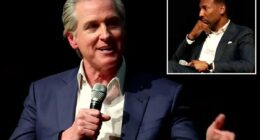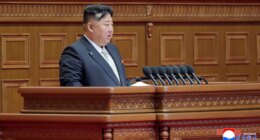Share this @internewscast.com
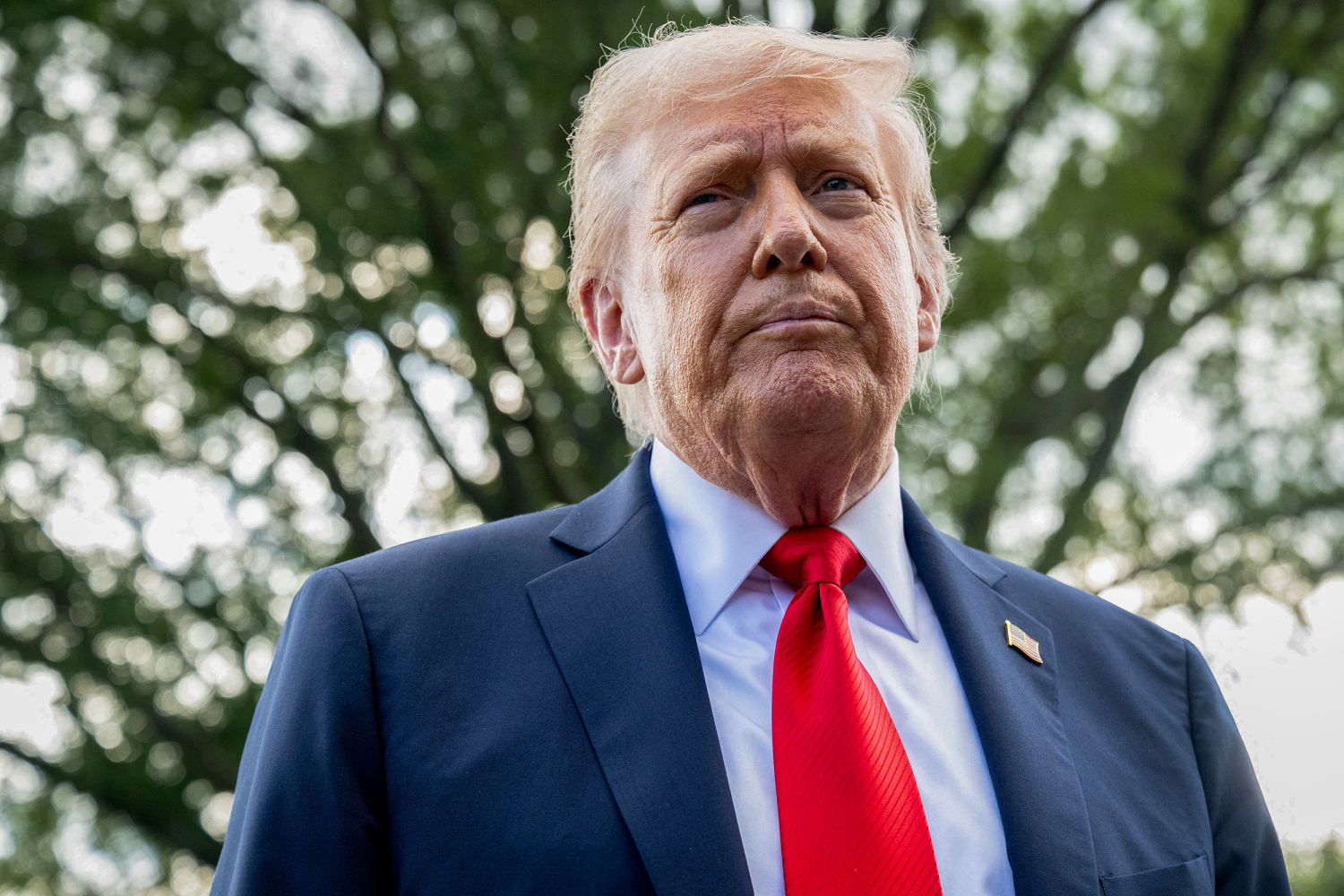
President Donald Trump indicated on Saturday his readiness to impose significant sanctions on Russia, contingent upon all NATO nations taking a similar stance and halting their oil purchases from Moscow.
He also urged NATO countries to impose “50% to 100% TARIFFS ON CHINA,” which he said should be withdrawn after the Russia-Ukraine war has concluded.
In a message shared on Truth Social, Trump stated, “China exerts a powerful influence over Russia, and these strong tariffs will disrupt that influence.” He described this message as part of a letter sent to all NATO members and “the world.”
Trump has repeatedly threatened to impose sanctions on Russia over its invasion of Ukraine, but has so far held off from doing so.
Earlier this month, the president said he was prepared to move towards a second phase of sanctioning Russia, but has not yet imposed the levies.
Analysts previously informed CNBC that Trump’s hesitation in enforcing these stringent economic measures might stem from his desire to mediate a peace agreement between Ukraine and Russia.
Chris Weafer, the CEO of the Moscow-based firm Macro-visory, mentioned in an earlier discussion with CNBC, “Another reason could be the belief that if Russia is defeated, it would be forced to deepen its ties with China, possibly boosting China’s power.”
Trump’s Saturday post underscores that he is shifting his focus to NATO nations to put pressure on Russia to end its war.
Trump further commented in the post, “As you are aware, NATO’s commitment to a decisive victory has been inconsistent, with some continuing to purchase Russian oil, which is quite startling!”
“It greatly weakens your negotiating position, and bargaining power, over Russia,” he continued.
Hungary and Slovakia have continued to buy Russian fossil fuels, drawing criticism from Trump officials.
U.S. Secretary of Energy Chris Wright stated on Friday, “We aim to replace all Russian gas. President Trump, alongside America, and all EU nations seek to put an end to the Russian-Ukraine conflict.”
